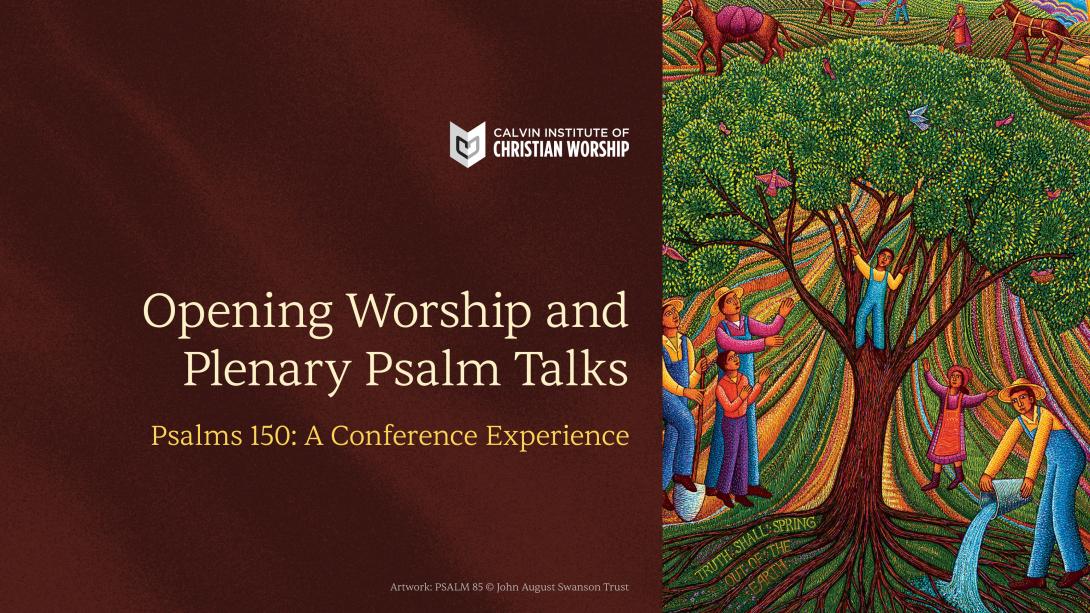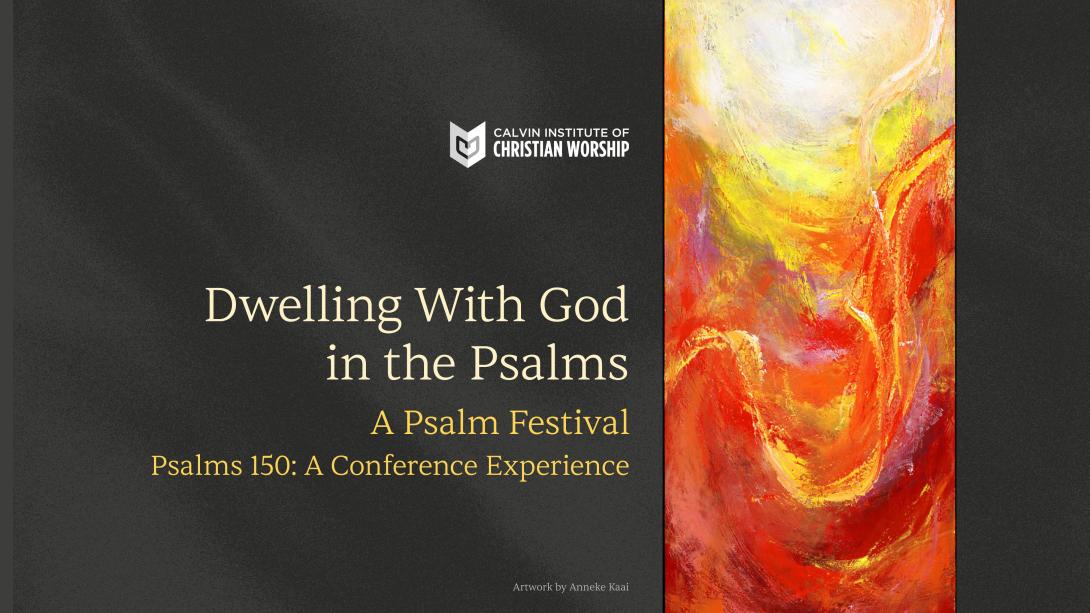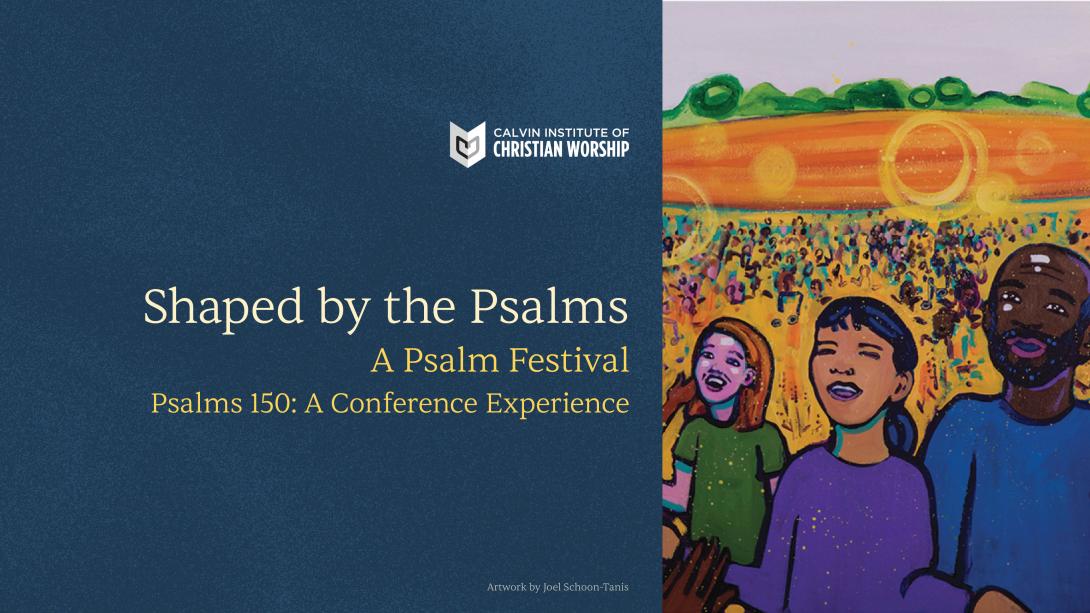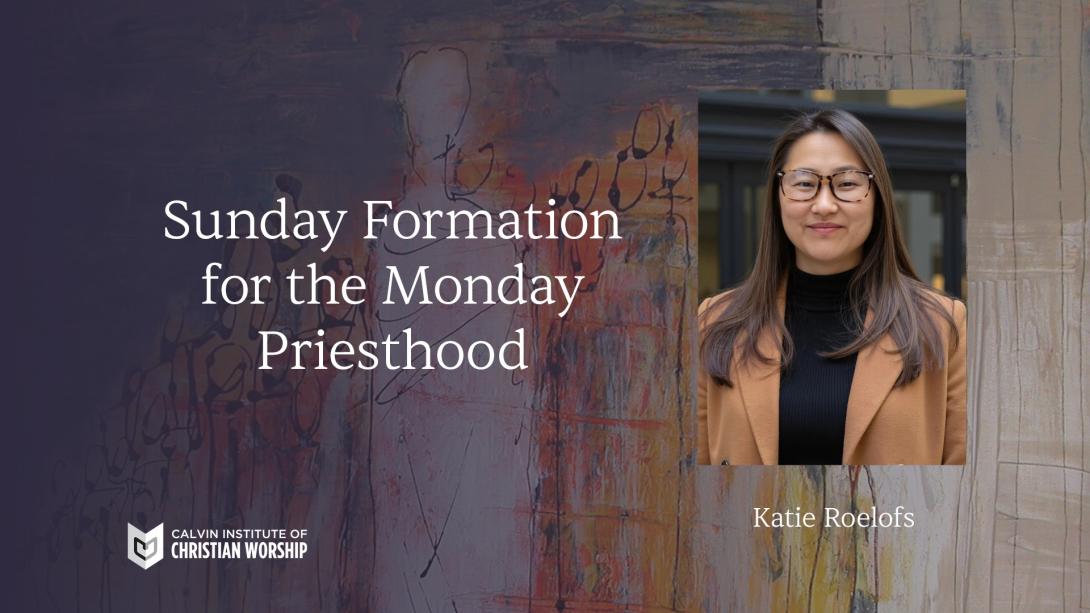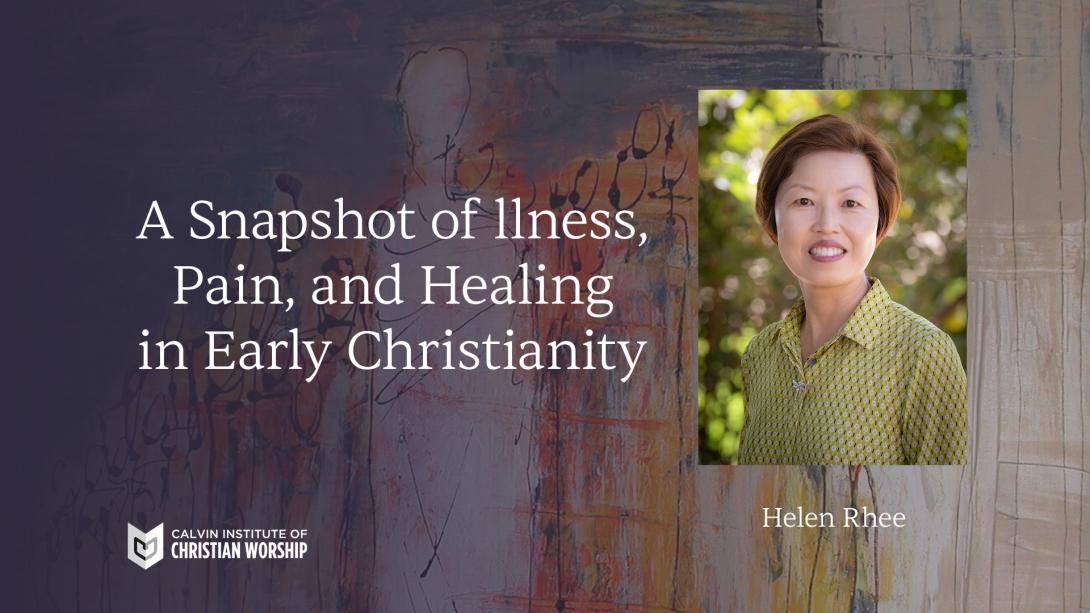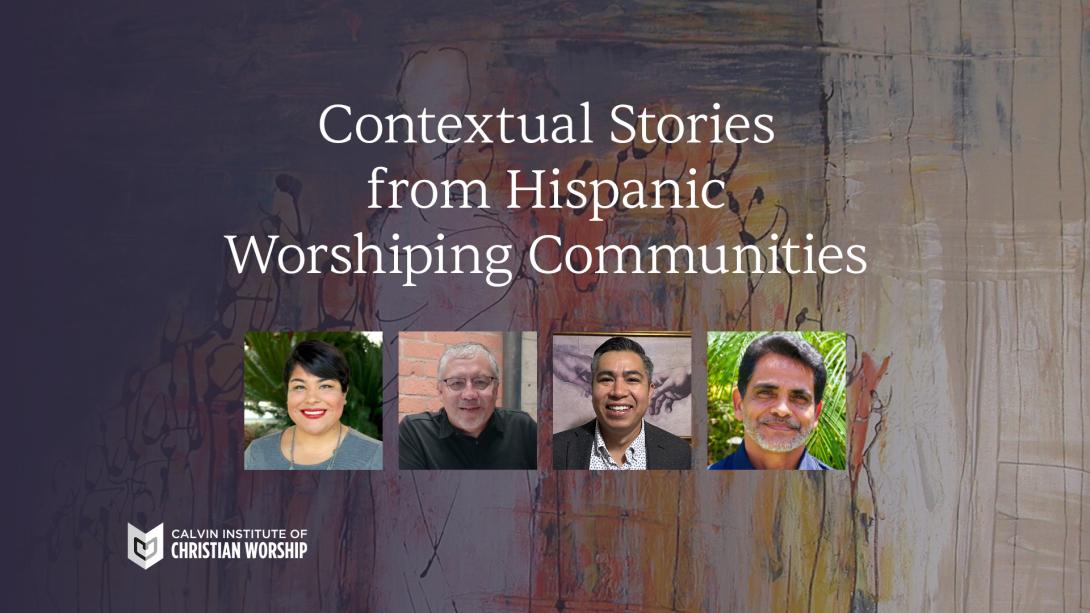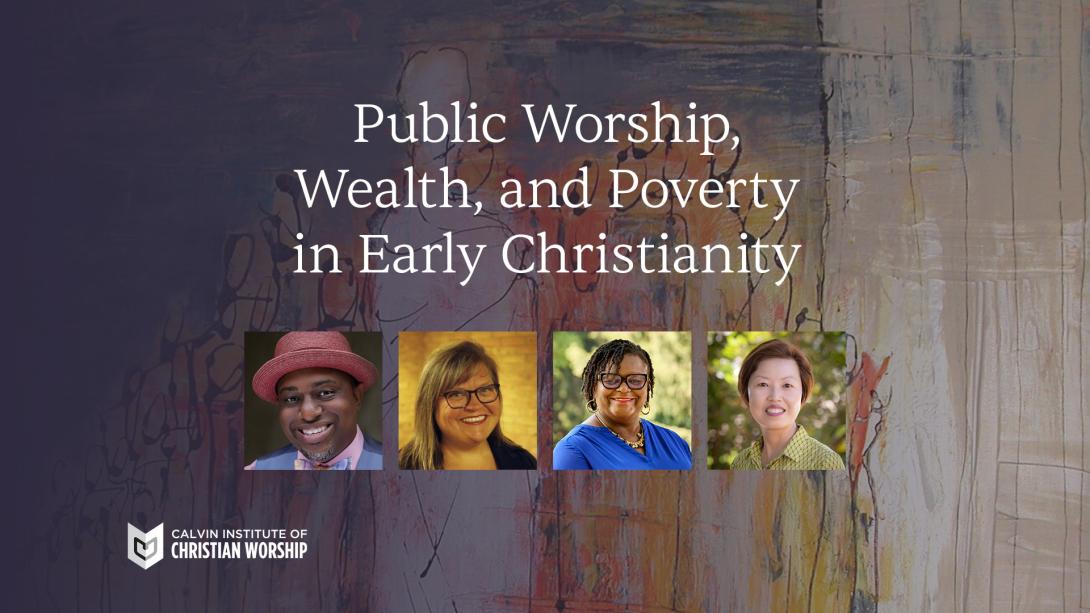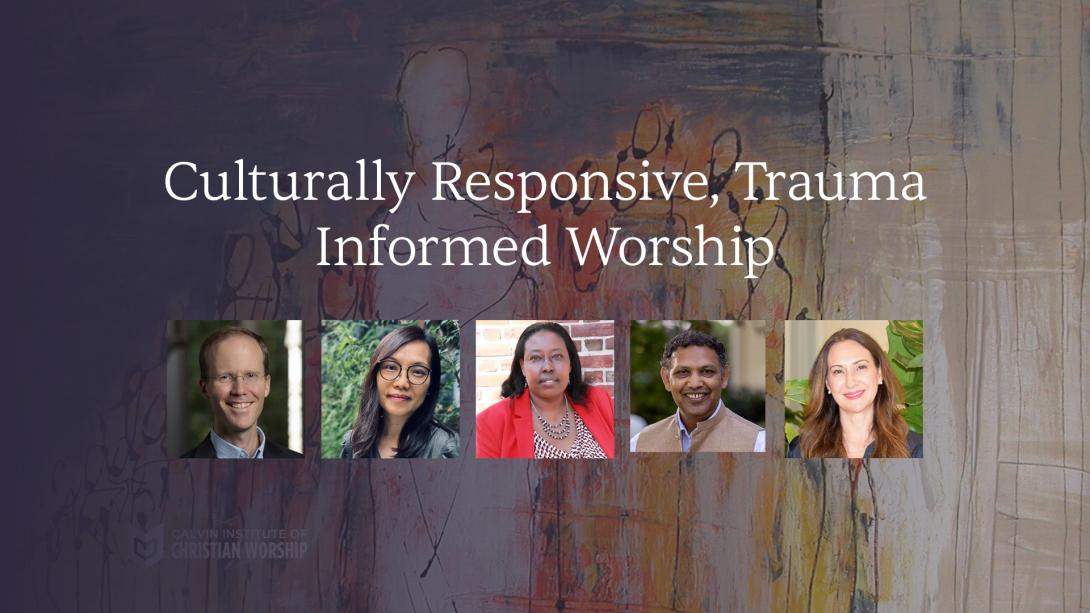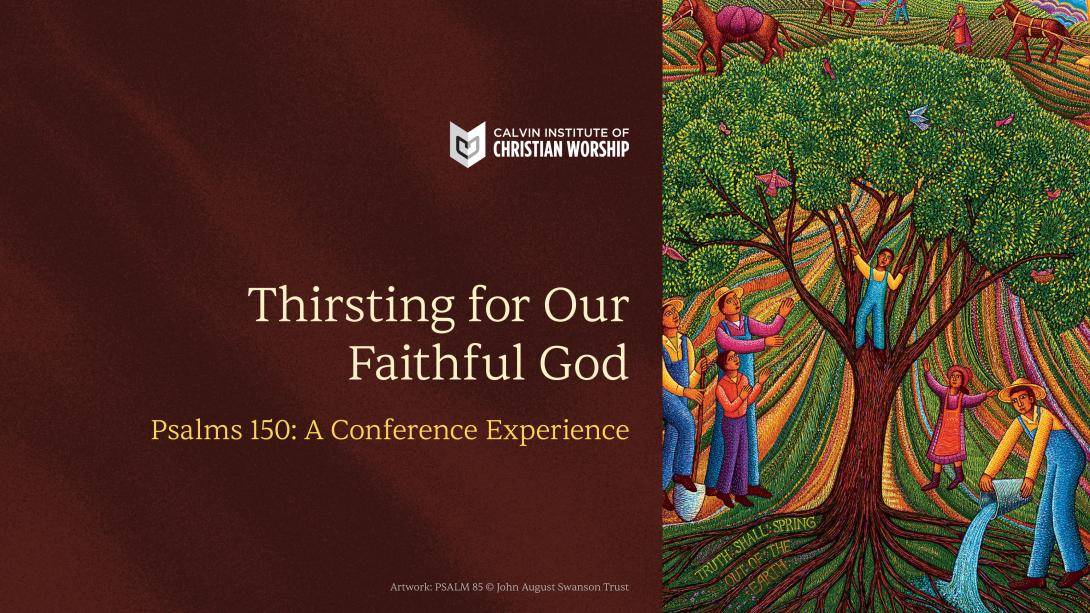
Thirsting for our Faithful God
Morning Worship led by staff of the Calvin Institute of Christian Worship, with Psalm Talks by Terry M. Wildman and Darlene Wildman, Karen Campbell, and Rawn Harbor, and artistic responses by Dea Jenkins and Joel Schoon-Tanis.
Watch videoOpening Worship with Psalm Talks with Artistic Responses
Worship led by Calvin University Worship Apprentices and mentor Paul Ryan, with Psalm Talks by Amanda Benckhuysen, Jared E. Alcántara, and Cynthia Eriksson, and artistic responses by Dea Jenkins and Joel Schoon-Tanis.
Dwelling with God in the Psalms
Closing Psalm Festival Worship led by Amanda Benkhuysen, Bellwether Arts, Celtic Psalms, Anneke Kaai, Darlene Wildman, and Terry Wildman.
Shaped by the Psalms: A Psalm Festival
Psalm Festival Worship led by Jared Alcántara; Vinroy D. Brown Jr.; Bellwether Arts; Karen Campbell; Calvin University’s Capella choir, directed by Mark Stover; Calvin University’s Gospel Choir, led by Nate Glasper; Celtic Psalms; and Rawn Harbor; with artwork by Joel Schoon-Tanis
Psalm Singing and the Genevan Psalter
Why and how did psalm singing become such a hallmark of Reformed worship? Join Dr. Karin Maag for a fascinating journey through time, from Reformation Geneva to Scotland and from the Netherlands to New England, exploring the roots and impact of metrical psalm singing. Along the way, we will hear the voices of early modern Christians as they learned how to sing the psalms, both in unison and in harmony.
Vinroy D. Brown Jr. on Black Psalmody is for Everyone
Vinroy D. Brown Jr.—conductor, musicologist, educator, and minister of creative worship and music at the historic Abyssinian Baptist Church in New York City—explores the vibrant intersection of Black sacred music and the psalms. He talks about Black composers and how they have reimagined the psalms through choral music, spirituals, and the gospel tradition for the benefit of everyone.
John Goldingay on the Psalms as Full of Theology and Straight Talking
John Goldingay, an Anglican priest and the senior professor of Old Testament at Fuller Theological Seminary, posits the psalms are the densest material in the entire Old Testament. They expound the nature of God as the compassionate, faithful, and committed one, but also as the one who makes demands upon us. The psalms help us talk to God, even about difficult things—and when we do, we are talking to someone who is in a position to do something about it.
Kathleen Harmon on Becoming the Psalms
Sister Kathleen Harmon of the community of the Ohio province of the Sisters of Notre Dame de Namur in Dayton, invites us to be transformed by the psalms and experience them as the whole story God is revealing to us. As we keep praying and singing them, the psalms interpret us, and that’s when the transformation comes.
Sunday Formation for the Monday Priesthood
The last few minutes of corporate worship are critical because they frame the entire purpose of worship and its connection to our lives in the world.
A Snapshot of Illness, Pain, and Healing in Early Christianity
How did early Christians understand their illness and pain in their Greco-Roman context?
Contextual Stories from Hispanic Worshiping Communities
Pastors of three Hispanic churches will share what they learned from experiences implementing congregational projects related to the development of new understandings and practices of worship and preaching.
Public Worship, Wealth, and Poverty in Early Christianity
Explore how Christians in the earliest centuries of Christianity engaged topics related to wealth and poverty in their preaching, public prayers, offerings, celebrations of baptism and the Lord’s Supper, and the shaping of buildings and spaces for Christian worship.
Culturally Responsive, Trauma-Informed Worship
In today’s diverse and interconnected world, understanding and addressing trauma through a culturally responsive lens is essential for creating inclusive and healing worship experiences.


